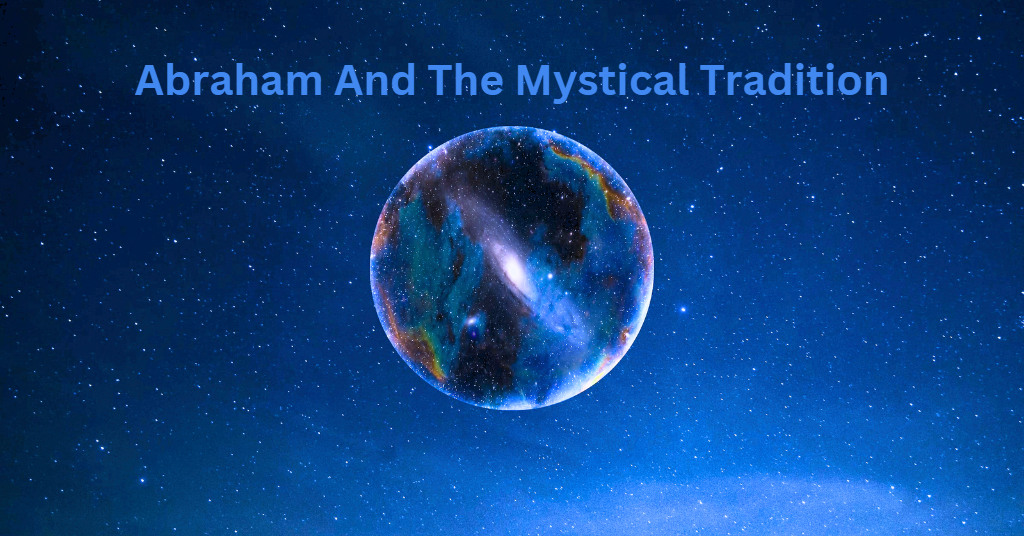The teachings of the Bahá’í Faith, which arise from a synthesis of religious principles, emphasize the need for unity, justice, and the explorative search for truth. Among its multifaceted doctrines, the conception of “The Mystical Altars of Abraham” emerges as a profound symbol, encapsulating the foundational legacy of Abrahamic faiths and their profound spiritual implications. This discourse intends to unravel the intricate layers surrounding the Bahá’í perspective on Abraham’s mystical altars, which serve not merely as relics of historical significance but as vibrant conduits to deeper metaphysical truths.
Abraham, regarded as a seminal patriarch in Judaism, Christianity, and Islam, embodies qualities of unwavering faith, sacrifice, and the longing for divine connection. Bahá’í teachings elevate Abraham to an exemplar whose spiritual journey transcends conventional paradigms, illustrating the transformative capacity of divine encounters. The altars revered in this tradition symbolize the physical manifestations of spiritual commitments. More than mere structures, they are emblematic of the nexus between the human and the divine—the thresholds upon which divine revelation occurs.
To dive deeper into the concept of mystical altars, one must first acknowledge the nature of spiritual sanctity. In the Bahá’í Faith, reverence for such sanctities draws upon both their historical relevance and their ongoing spiritual potency. The altars signify stages of spiritual development, depicted through the trials and tribulations faced by Abraham as a seeker of truth. They invite individuals to contemplate their own personal altars—those sacrifices or commitments that one must undertake in the quest for spiritual enlightenment.
The allure surrounding these mystical altars can also be observed through the lens of collective consciousness. The notion implies that such altars do not exist merely in isolation but are universally authentic in their resonance. They serve as focal points where the myriad of human experiences converge, showcasing Abraham’s relentless quest for understanding and unity amidst diverse communities. This communal aspect is vital in Bahá’í philosophy, as it underscores the imperative of collaboration among humanity in pursuit of truth.
Thus, the altars are not just indicators of historical events; they symbolize the call to a higher standard of moral and spiritual awareness, urging seekers to dismantle the barriers that divide. The Bahá’í teachings herald a vision of unity that is echoed in the stories and sacrifices associated with Abraham—advocating for the transcendence of earthly concerns to embrace the sublime. Each altar can be seen as a point of reconciliation and a reminder of our inherent interconnectedness.
Examining these mystical altars further unveils their role in the cosmic order. In Bahá’í thought, the universe is a manifestation of divine design where each entity plays a significant role in the grand tapestry of existence. Abraham’s altars represent not only personal dedications to God but also a reflection of the greater purpose bestowed upon humanity. They are pivotal in beckoning individuals to align their personal aspirations with collective human advancement.
Another significant dimension of these altars is the invocation of divine attributes. For Bahá’ís, the altars exemplify qualities such as love, mercy, and justice—qualities that are essential in the nurturing of harmonious societies. This understanding resonates through scriptural interpretations which depict Abraham as an archetype of steadfastness and fidelity to the divine will, thereby encouraging others to emulate these virtues in their lives.
Moreover, the allegorical essence of the altars invites a contemplative engagement with the inner self. Each altar can be interpreted as a metaphor for the trials of the ego, urging individuals to transcend self-imposed limitations. In essence, the act of building one’s personal altar symbolizes an invitation to foster a deeper connection with the divine through self-identification with the struggles faced by Abraham. This self-exploration fosters spiritual maturity—a central tenet in the Bahá’í path.
The significance of the rituals associated with Abraham’s altars evokes further reflection. Rituals serve as embodiments of collective memory and heritage. They are instilled with meaning and serve to educate subsequent generations about the virtues encapsulated within Abraham’s narrative. The Bahá’í Faith advocates for the adoption of such practices that cultivate a greater awareness of one’s divine purpose, underlining the necessity of continuous spiritual education.
In conclusion, the Bahá’í teachings regarding “The Mystical Altars of Abraham” extend far beyond their historical and theological underpinnings. They beckon seekers to reflect upon their own spiritual journeys, encouraging a holistic approach that harmonizes personal growth with communal well-being. As individuals gaze upon these altars—whether literal or metaphorical—there lies an invitation to transcend mundane interactions and partake in an ever-unfolding narrative of divine revelation. This shared religious heritage fosters unity and interconnection amid diverse beliefs, exemplifying the essence of Bahá’í principles. Thus, the mystical altars stand as sublime reminders of our shared spiritual odyssey as we navigate the intricacies of existence and the perennial quest for truth.
